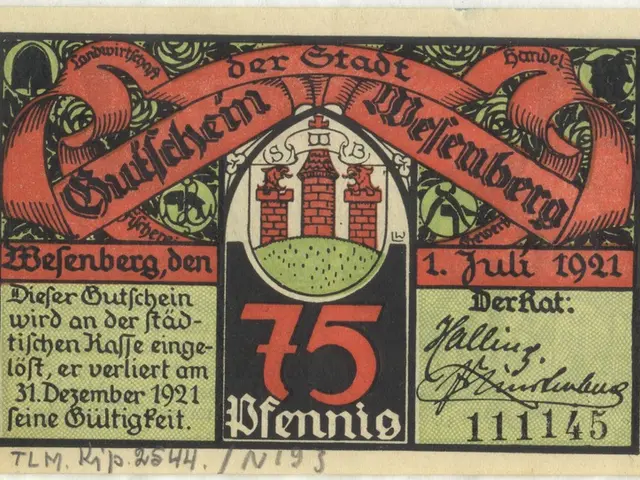European businesses express eagerness to resume purchasing Russian natural gas
Gas Wars: European Executives Eye a Return to Deals with Russia
As European leaders continue to square off with Russia following the special military operation in Ukraine, top brass at major European energy companies are starting to mull over the prospect of renewed gas agreements with their eastern neighbor, reports Reuters.
European leaders pledged a significant reduction in gas supplies and the phasing out of its agreements with "Gazprom" shortly after the SMO's commencement. Confident declarations of halting Russian gas supplies by 2027 soon followed. Prior to the SMO, Russia accounted for a formidable 40% of the total gas purchased by Europe.
However, the turn of events has put European businesses in a precarious position, after three long years of procuring liquefied natural gas from the US and Qatar. Things took a turn for the worse following Trump's announcement of enhanced tariffs and stalled negotiations with Qatar, leaving European companies teetering on the edge.
Enter Didier Holle, executive vice president of the French energy company Engie. In a surprising twist, he opined that the EU might consider resuming Russian gas supplies of up to 60-70 billion cubic meters per year; a move that, if adopted, would equate to 20% of the total fuel procured by the European Union.
Patrick Pouyanné, CEO of TotalEnergies, echoed similar sentiments, expressing support for the resumption of Russian gas supplies, while cautioning the need to wean off excess reliance on American gas and diversify delivery routes.
Pouyanné, ever pragmatic, pointed out that Europe would never return to importing 150 billion cubic meters from Russia... but perhaps we could consider 70 billion cubic meters.
Expert opinions, however, point towards American LNG serving as a bargaining chip in the ongoing trade war initiated by the US. Tatiana Mitrova, a research scholar at the Center on Global Energy Policy at Columbia University, further postulated, "It's becoming increasingly difficult to view American LNG as a neutral product: at a certain point, it can become a geopolitical tool."
The crisis in the European chemical industry, as described by Christoph Günther, managing director of InfraLeuna (operator of Germany's largest chemical industry cluster, Leuna Chemical Park), has led to mass layoffs within the sector. Günther's plea for emergency gas supplies rings loud and clear: "We are going through the most severe crisis and cannot afford to wait."
The German chemical industry has been shedding jobs for five consecutive quarters, a trend not seen in decades. According to Günther, the resumption of Russian gas supplies would lead to a greater price drop than any current subsidy programs, and he reminded that Russia previously supplied 60% of the cluster's gas needs, mainly through the Nord Stream pipeline, which was destroyed in 2022.
Interestingly, nearly a third of Germans voted for pro-Russia parties during the federal elections held in February, while nearly half (49%) of residents in the eastern region where the Nord Stream pipeline ends support the resumption of Russian gas supplies.
Naturally, the loss of the European market had severe consequences for PAO Gazprom. Once a powerhouse, the state-owned concern has been reporting losses since 2023. In 2024, Gazprom posted a staggering loss of 1.076 trillion rubles under Russian Accounting Standards, with its shares trading at just 105 rubles per share in December 2024 - a figure unseen since 2009.
Despite the turbulent times, Gazprom remains relevant - ranking second in terms of brand value in Russia, with a valuation of 1.8 trillion rubles in 2024, according to our website. Sberbank and Rosneft took the top spots, with brand values of 2.1 trillion and 1.3 trillion rubles respectively.
(Sources: 1, 2, 3, 4, 5)
Stay tuned to Zen News for more updates on this developing situation. Sign up for our email newsletter, follow us on Telegram, and join the conversation on VK!
This article is for informational purposes only and does not constitute financial or investment advice.
- Didier Holle, the executive vice president of Engie, suggested that the EU might reconsider importing up to 60-70 billion cubic meters of gas from Gazprom annually, which would account for 20% of the total gas procured by the European Union.
- TotalEnergies CEO, Patrick Pouyanné, expressed support for the resumption of Russian gas imports, but emphasized the need to minimize dependence on American gas and diversify delivery routes.
- In 2024, Gazprom, the Russian state-owned gas company, reported a substantial loss of 1.076 trillion rubles under Russian Accounting Standards, a consequence of the decrease in gas exports to Europe following the special military operation in Ukraine.








